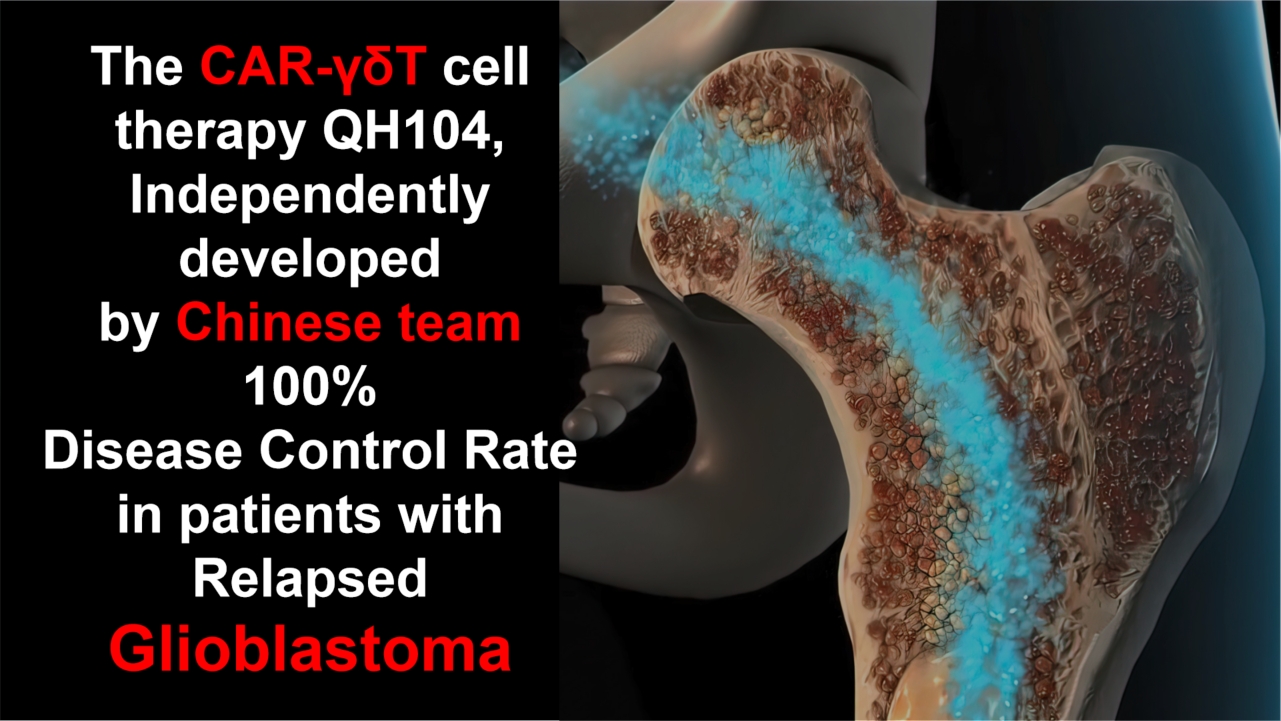Warning: Trying to access array offset on value of type bool in /www/wwwroot/www.medtourcn.com/wp-content/themes/medical-directory/framework/theme/medicaldirectory-image.php on line 78
Warning: Trying to access array offset on value of type bool in /www/wwwroot/www.medtourcn.com/wp-content/themes/medical-directory/framework/theme/medicaldirectory-image.php on line 79

Revolutionizing Cancer Treatment: China’s Groundbreaking CAR-T Therapy Targets Glioblastoma
Revolutionizing Cancer Treatment: China’s Groundbreaking CAR-T Therapy Targets Glioblastoma
#CAR_Therapy #Glioblastoma #CancerResearch #InnovativeMedicine
A Chinese medical team has recently made significant progress in t
he field of CAR-T cell therapy, bringing new hope for the treatment of solid tumors such as glioblastoma (GBM). While CAR-T therapy has achieved great success in treating hematologic
al malignancies, its efficacy against solid tumors like glioblastoma remains limited. The innovative research by the Chinese medical team has greatly enhanced the attacking capability of CAR-T cells against solid tumors through the design of high-affinity protein binders from scratch.
The study, published in *Nature Biomedical Engineering* under the title “Targeting overexpressed antigens in glioblastoma via CAR T cells with computationally designed high-affinity protein binders,” presents a novel Binder CAR strategy that replaces the traditional scFv antibody structure. Through computational design, the Chinese research team precisely constructed a new protein binding domain targeting highly expressed antigens in glioblastoma—EGFR and CD276. This new Binder CAR demonstrated significant anti-tumor effects in experiments compared to traditional scFv CAR, especially in the treatment of glioblastoma, a highly malignant tumor. The Binder CAR not only enhanced tumor-killing capacity but also effectively prolonged the survival time of experimental mice.
This groundbreaking technology showcases China’s strong innovative capability in cancer treatment. The Binder CAR can not only identify tumor antigens more stably and efficiently but also reduces the potential T cell exhaustion issues associated with traditional CAR-T therapy, significantly improving treatment durability. In the future, this strategy is expected to be applied to the treatment of other solid tumors, heralding a new era for CAR-T therapy.
China is not only pioneering the era of CAR-T in solid tumors but has also achieved remarkable success in hematological malignancies. Whether it’s the CD19 CAR-T therapy for relapsed or refractory large B-cell lymphoma (DLBCL) and leukemia that is already on the market, or the BCMA CAR-T therapy for multiple myeloma, China has made substantial progress and is now at the forefront of global CAR-T advancements. Additionally, the number of CAR-T therapies in clinical development is astounding, including dual-target CAR-T therapies targeting CD20, CD22, and CD30, or the recently headline-grabbing universal CAR-T therapies, as well as the explosive news regarding CAR-T therapies for autoimmune diseases. China is in a position of complete leadership. We look forward to bringing more good news to cancer patients worldwide.

 To assess whether the condition is suitable for CAR-T therapy, you can submit pathology reports, treatment history, and discharge summaries to the Medical Department of Advanced Medicine in China for preliminary evaluation!
To assess whether the condition is suitable for CAR-T therapy, you can submit pathology reports, treatment history, and discharge summaries to the Medical Department of Advanced Medicine in China for preliminary evaluation!
WhatsApp: Https://wa.me/+8613717959070
Email: doctor.huang@globecancer.com
#CART #CancerTreatment #Glioblastoma #ChinaInnovation #MedicalBreakthrough #SolidTumors #Immunotherapy #CureCancer #Biotech #MedicalResearch
Warning: Trying to access array offset on value of type bool in /www/wwwroot/www.medtourcn.com/wp-content/themes/medical-directory/framework/theme/medicaldirectory-image.php on line 78
Warning: Trying to access array offset on value of type bool in /www/wwwroot/www.medtourcn.com/wp-content/themes/medical-directory/framework/theme/medicaldirectory-image.php on line 79

The CAR-γδT cell therapy QH104, independently developed by a Chinese team, has demonstrated a 100% disease control rate in patients with relapsed glioblastoma
**The CAR-γδT cell therapy QH104, independently developed by a Chinese team, has demonstrated a 100% disease control rate in patients with relapsed glioblastoma.**
#glioblastoma #CARγδT #QH104 #γδT #B7H3 #rGBM #CARgammaT

glioblastoma

